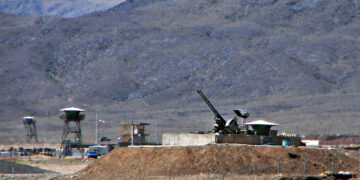A substantial amount of ink and blood has been spilled throughout the many failed attempts to create a “new” Middle East. Yet the region’s response to recent events highlights a new trend in its geopolitics—namely a real shift towards ruthless pragmatism and cooperation. Indeed, even amid a less-than-shadowy war between arch-rivals Iran and Israel, the region’s leaders have largely come to accept that the conflict-infested Middle East of old does not fit into their grand strategies or national interests. This realization is slowly forming a truly new Middle East from within.
This transformation is hardly perfect. As the conflict in Sudan highlights, competition in areas deemed acceptable battlegrounds across the Arab world remains an issue, often at the expense of national sovereignty and its population. This reality was recently or still is the case in Lebanon, Syria, Iraq, Palestine, Yemen, Libya, and Tunisia. Tel Aviv and Tehran have proven adept at creating arenas to compete in, just as Gulf states like the United Arab Emirates (UAE) continue to fight any semblance of democracy out of fear of Islamist rule.
No one should expect these dynamics to change overnight. Rather, connecting relatively small, isolated moments from the last few years highlights big changes underway. These moments include the end of the blockade of Qatar, Gulf state re-normalization efforts with the former Assad regime, the ceasefire in Yemen between the Saudi-led coalition and the Houthis, and the Chinese-backed Saudi Arabia-Iran re-normalization agreement. Each moment reflected a pragmatic desire to focus on economic development through cooperation—a focus stemming from the fear produced by the Arab Spring and the lack of individual freedom and opportunity that undergirded it.
Still, these moments are significant. They mark major turning points away from conflict and a tumultuous Arab Spring period in which the region’s counter-revolutionary autocrats threw everything and the kitchen sink at even the most remote threats to their rule. The important point to focus on is the pragmatic push away from conflict even when relations with a specific opponent did not improve—a ruthlessly pragmatic approach appearing after the region’s leaders realized that hawkish policies were failing to resolve their problems.
More on Middle East

Featuring Rosemary Kelanic
October 16, 2025
Featuring Daniel Davis
October 15, 2025
Events on Middle East








